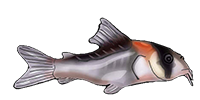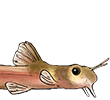About hybridization
About hybridization
Hi everyone;
I have a tank that contains 9 trilianus and 10 sterbai. These guys were tiny when I bought them but I am happy to say that they have grown really big and healthy and full. This morning I noticed they ere very frisky and I see the trilianus doing their active courtship and the sterbai were too. It became a mess though I do notice the fish try to stay within their own species. I found a bunch of eggs and I collected them. My question is that, given these two both belong to lineage 9, are the chances of these eggs being hybrid really great even when I see they attempting to stay within their own ? If so should I just destroy the eggs and not bother hatching them? Should I separate these two groups and maybe move the trilianus with my eques and leave the sterbai by themselves, given trilianus and eques are not of the same lineage? Thank you mike
I have a tank that contains 9 trilianus and 10 sterbai. These guys were tiny when I bought them but I am happy to say that they have grown really big and healthy and full. This morning I noticed they ere very frisky and I see the trilianus doing their active courtship and the sterbai were too. It became a mess though I do notice the fish try to stay within their own species. I found a bunch of eggs and I collected them. My question is that, given these two both belong to lineage 9, are the chances of these eggs being hybrid really great even when I see they attempting to stay within their own ? If so should I just destroy the eggs and not bother hatching them? Should I separate these two groups and maybe move the trilianus with my eques and leave the sterbai by themselves, given trilianus and eques are not of the same lineage? Thank you mike
- MissNoodle
- Posts: 461
- Joined: 03 Oct 2019, 20:51
- My articles: 1
- My images: 31
- My cats species list: 27 (i:27, k:5)
- My aquaria list: 5 (i:5)
- My BLogs: 7 (i:35, p:389)
- My Wishlist: 10
- Spotted: 42
- Location 1: Ontario
- Location 2: Canada
Re: About hybridization
Honestly if they have mates to choose from their own, they'd usually stick to their own as their first preference. Hybrids are more likely to occur when there isn't an option to breed with aside from the other species.
If it makes you feel more at ease, you can choose to separate the same lineage group if you want just fine, if space permits.
If it makes you feel more at ease, you can choose to separate the same lineage group if you want just fine, if space permits.
Corydoras, Hoplosternum, Farlowella, Pleco
Re: About hybridization
Thanks I feel better. I really don’t want to separate these two as they seem very at ease with each other and grew up together. It’s strange how they seem to be egging each other on to spawn. Two sterbai would be wiggling at each other and a false Julie would dash forward and do the same with one of its kind.....at this point I have no idea whose eggs I had collected. They are all doing it in the huge mop of Java moss that I have in the tank.
- bekateen
- Posts: 8989
- Joined: 09 Sep 2014, 17:50
- I've donated: $40.00!
- My articles: 4
- My images: 130
- My cats species list: 142 (i:102, k:39)
- My aquaria list: 36 (i:13)
- My BLogs: 44 (i:149, p:2671)
- My Wishlist: 35
- Spotted: 177
- Location 1: USA, California, Stockton
- Location 2: USA, California, Stockton
- Contact:
Re: About hybridization
Hi Miou,
I agree with Miss Noodle that if they have their own mates, the chances of hybrids are lower. That said, as you point out, they are both lineage 9. I've had corys follow spawning fish of another species even when they have their own kind, not so much I assume, because they like the other species better, but because none of the opposite sex in their species is ready to mate. If I were you going forward, I would find a way to separate these. Trilineatus is almost as bad as panda at its willingness to hybridize with other species.
Cheers, Eric
I agree with Miss Noodle that if they have their own mates, the chances of hybrids are lower. That said, as you point out, they are both lineage 9. I've had corys follow spawning fish of another species even when they have their own kind, not so much I assume, because they like the other species better, but because none of the opposite sex in their species is ready to mate. If I were you going forward, I would find a way to separate these. Trilineatus is almost as bad as panda at its willingness to hybridize with other species.
Cheers, Eric
Find me on YouTube and Facebook: http://youtube.com/user/Bekateen1; https://www.facebook.com/Bekateen
Buying caves from https://plecocaves.com? Plecocaves sponsor Bekateen's Fishroom. Use coupon code "bekateen" (no quotes) for 15% off your order.
Re: About hybridization
Thank you Eric I didn’t know that about the trilineatus being so “loose” about their spawning mate. I will try to separate them. My problem is that I have no more room. I may have to move them to the 40 gal with fancy goldfish and jack up the temp from the 70 F for the goldfish to 77 F for the cories. I think the goldfish can handle the high 70 temp as many goldfish farms are in Thailand where it gets really hot.




